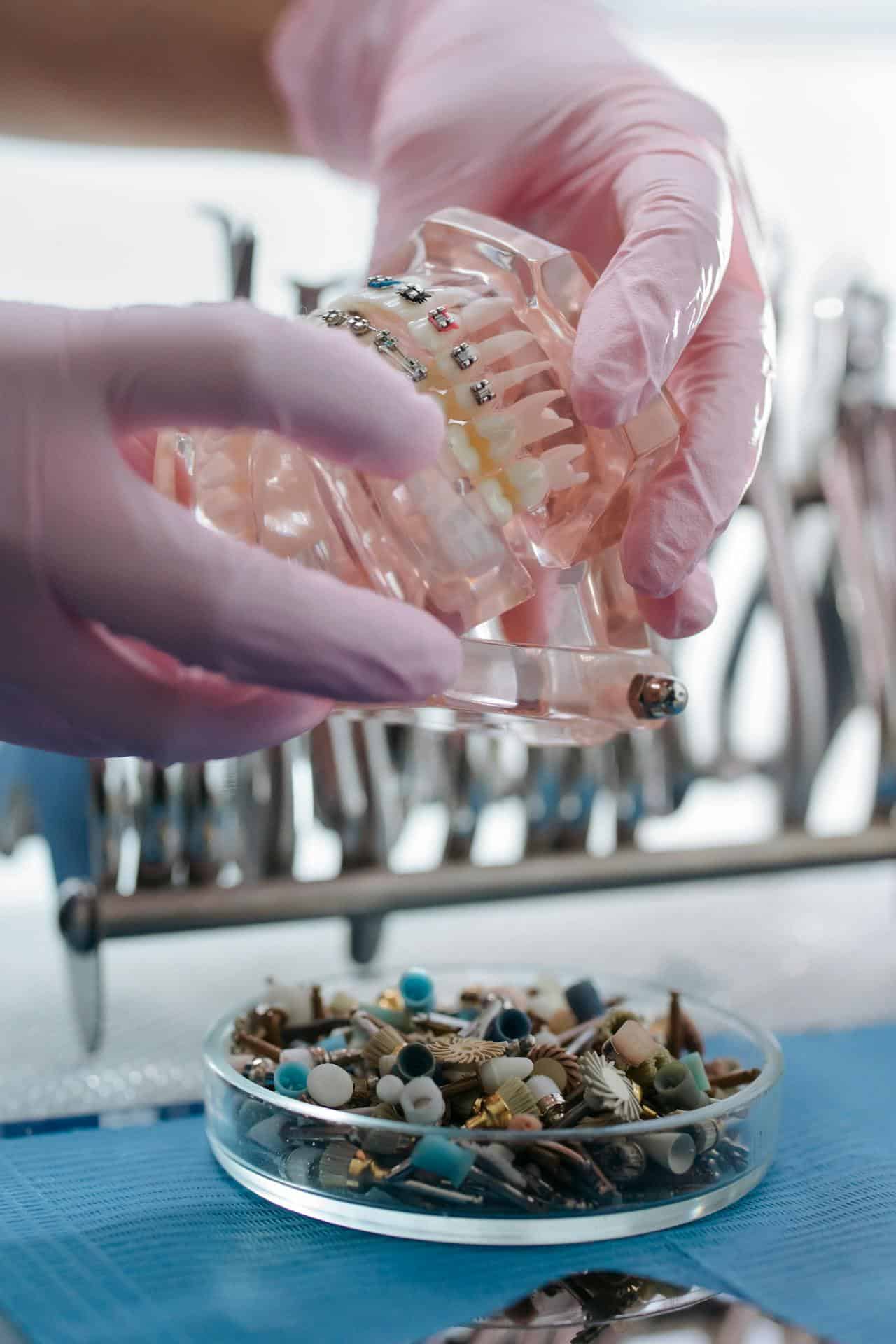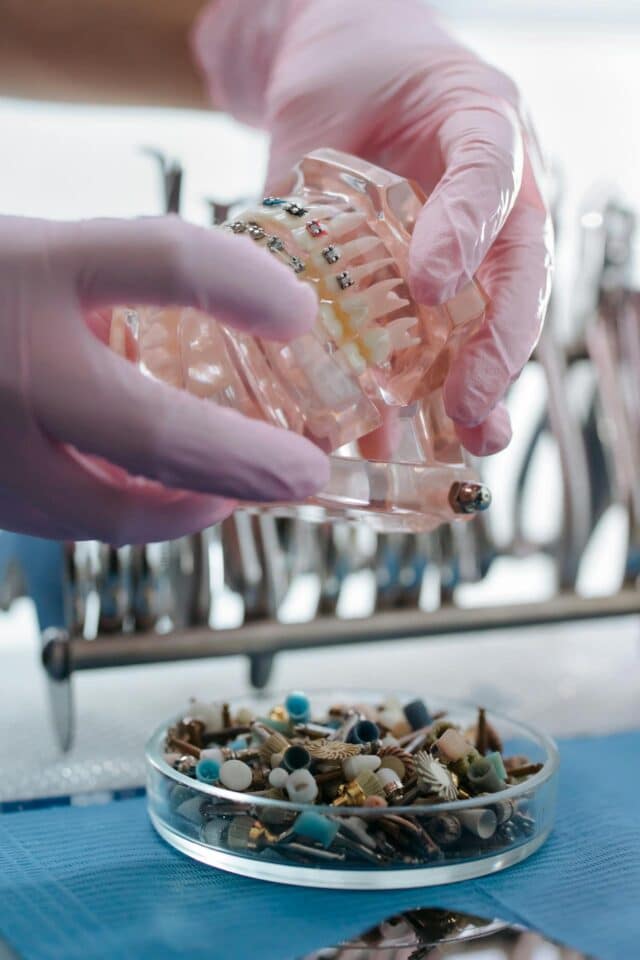
You’ve likely encountered dental implants if you are exploring ways to restore your smile and improve dental functionality. They are widely recognized as one of the most advanced and effective solutions for replacing missing teeth, enhancing oral health, and improving overall quality of life.
However, not all implants are the same. There are different types of dental implants, and the right one for you depends on your unique needs, like how many teeth you’re missing and what you want out of your treatment.
Let’s examine these three common types of dental implants in more detail and discover what makes each one special.
Single Tooth Implants
Single-tooth implants are the gold standard for replacing one or two missing teeth. They’re designed to function just like a natural tooth, both in appearance and durability.
How Does the Procedure Work?
The process starts with a consultation, during which your dentist evaluates your oral health and jawbone density. If you’re a suitable candidate, the implant is surgically placed into your jawbone in a minimally invasive procedure.
After placement, the healing process begins. Over the next few months, the implant integrates with your jawbone (a process called osseointegration), creating a sturdy foundation for your new tooth.
Once healing is complete, your dentist will design a custom crown to match the size, shape and color. The crown is attached to the implant, giving you a replacement tooth that looks and feels completely natural.
Pros and Cons of Single Tooth Implants
Here’s a closer look at why single-tooth implants are such a popular option, as well as a few considerations:
Pros:
- They are long-lasting and incredibly durable (with proper care, they can last a lifetime).
- They prevent bone loss by stimulating the jawbone and maintaining oral health and facial structure.
- This type of dental implant provides a natural appearance and function, allowing you to eat, speak, and smile with confidence.
Cons:
- They require adequate jawbone density for successful placement.
- The healing phase can take several months.
- Upfront costs can be higher compared to other single-tooth solutions.
Single-tooth implants are suitable types of dental implants for patients who want a permanent solution that is nearly indistinguishable from a natural tooth.
Implant Bridges
Implant-supported bridges are the go-to solution for patients missing multiple adjacent teeth. Instead of relying on nearby teeth for support like traditional bridges, these are securely anchored into the jawbone using dental implants. This method eliminates unnecessary strain on healthy teeth while providing lasting stability and durability.
These bridges are typically made from high-quality materials like porcelain or zirconia, ensuring they look and feel like natural teeth.
How the Procedure Works
Your dentist will start with a thorough evaluation to determine the best placement for your implants. Two or more titanium posts are surgically placed into the jawbone to serve as anchors. Once placed, these implants need time to integrate with the bone. This healing phase, which can take a few months, ensures the implants are strong enough to support the bridge.
After healing, your dentist designs a custom bridge that blends seamlessly with your natural teeth. The bridge is then securely attached to the implants, restoring your smile and allowing you to chew, speak and smile confidently.
Pros and Cons of Implant Bridges
Here’s what makes implant bridges a top choice for replacing multiple teeth, along with some potential drawbacks:
Pros:
- Implant bridges replace multiple teeth without impacting healthy surrounding teeth.
- They restore your ability to chew and speak naturally and comfortably.
- They preserve jawbone health, preventing the facial sagging that often accompanies tooth loss.
Cons:
- Sufficient jawbone density is required for implant placement.
- Healing and integration phases can extend the treatment timeline.
- Initial costs are higher than traditional bridges or removable partial dentures.
Implant bridges provide a long-lasting, aesthetically pleasing solution for patients looking to replace multiple teeth with a stable and functional option.
All-on-4 Dental Implants
For patients missing most or all of their teeth, All-on-4 dental implants are a life-changing solution. This innovative system uses just four implants to support a full arch of teeth, offering a permanent and natural-looking alternative to traditional dentures. Unlike removable dentures, All-on-4 implants are fixed in place, so you don’t have to worry about slipping or adhesives.
The prosthesis is custom-designed to look and feel like natural teeth, ensuring comfort, functionality and a beautiful smile.
How Does the Procedure Work?
All-on-4 implants start with an in-depth consultation to assess your jawbone and oral health. Once your dentist confirms you’re a candidate, four implants are strategically placed in your jawbone. Two of these implants are angled to maximize stability, even for patients with some bone loss.
In most cases, a temporary prosthesis is attached on the same day as the implant placement, allowing you to leave the office with a functional smile. Over the next few months, the implants integrate with the bone, creating a stable foundation.
Once healed, a custom-designed permanent prosthesis is secured to the implants, restoring full functionality and giving you a confident, natural-looking smile.
Pros and Cons of All-on-4 Dental Implants
Here’s what makes this type of dental implant a game-changer and some factors that should be considered:
Pros:
- All-on-4 implants restore a full set of teeth with only four implants.
- They eliminate the hassle of removable dentures.
- They keep your jawbone healthy and helps maintain a youthful facial appearance.
Cons:
- Bone grafting may be required if significant bone loss has occurred.
- These implants require a solid commitment to maintaining good oral hygiene for long-term success.
- There are higher upfront costs compared to traditional dentures.
All-on-4 implants are an excellent option for patients seeking a permanent, functional, and aesthetically pleasing solution to extensive tooth loss. They provide stability, convenience, and the closest experience to having natural teeth again.

Restore Your Smile, Renew Your Confidence
Missing teeth can impact more than just your appearance. They can affect your confidence, comfort and overall oral health. Fortunately, dental implants offer a lasting solution to restore function and aesthetics. Whether you need a single-tooth implant, an implant bridge or a full-arch restoration with All-on-4 implants, there’s an option that can help you smile confidently again.
There’s no better time to take charge of your oral health. Request an appointment at Archpoint Implant Dentistry and discover how dental implants can transform your smile — and your life.








